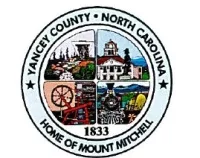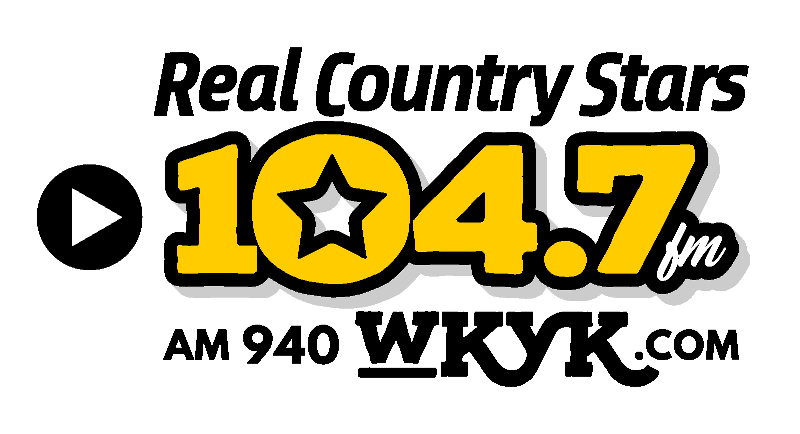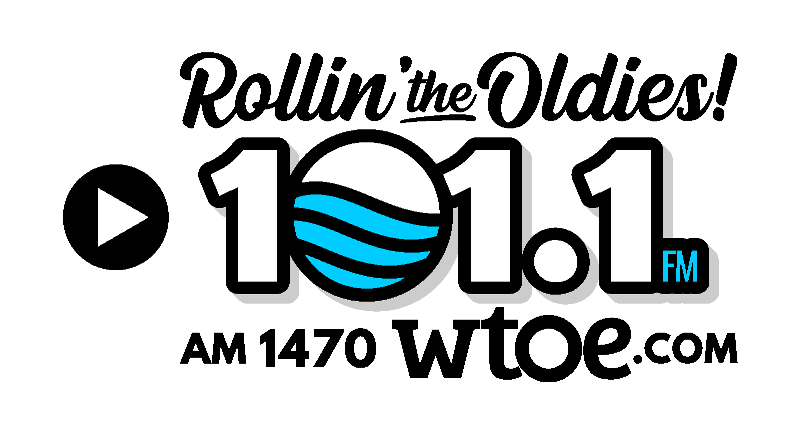PRESS RELEASE: Yancey County conducts a revaluation every eight (8) years. This is required by law for all counties in North Carolina. The last revaluation was conducted in 2016 when the market was at an all-time low, and the tax rate was raised from $0.50 to $0.60. During this most recent revaluation, properties were at an all-time high due to the influx and inflated sales of real estate in Yancey County during and after the COVID pandemic. As with everyone else, Yancey County saw a huge increase in expenditures for everyday items, especially vehicles and anything related to the medical field. Purchases were kept at a minimum to reduce the usage of the fund balance (county savings account). All counties are required to have a fund balance of at least 8%; as of June 30, 2023, Yancey County had an available fund balance of 20.2% ($6.9 million), which is substantial, but the state average for fund balance is 48.3%, which we still fall far behind.
During the revaluation, Yancey County’s values did increase, and the tax rate was lowered from $0.60 to $0.52 to relieve some of the burden from the taxpayer. However, with the influx of citizens in Yancey County, services have also substantially increased. We have a higher amount of 911 calls, which are mainly EMS and Sheriff’s Office related, therefore we need more dispatchers, paramedics, deputies, and jailers. Social Services has also had an increase in citizens requesting services, and a large portion of those services are funded by Yancey County taxpayers. The Yancey County Health Department has increased the number of services provided to all citizens of Yancey County. The Yancey County Sanitation/Landfill Department budget has also increased tremendously due to the increase in garbage accumulated in Yancey County, which we charge no fees for. We will take the next few months to dive deeper into these departments to show all services provided and what a tremendous asset they are to Yancey County. Yancey County citizens deserve to have the best services we can offer, and that is what we strive to do.
The largest increases in the budget are related to salaries and benefits for county employees, EMS Services, School Resource Officers, building repairs, and School Current Expense and the continuation of school renovations. Yancey County employees were one of the lowest paid in the state, so we were basically a training ground for other counties. Yancey departments would hire the employees, train them, and they would be scooped up by other counties that could offer higher wages. The vicious cycle remained for years, employees were frustrated because they were overworked and underpaid. A company was hired to do a pay study to compare our employees and job duties to other counties with comparable populations. As you can imagine, the results were shocking and to get our employees where they needed to be, an additional $1,287,116 was added to the county’s budget. We are extremely proud of our employees and feel they should be paid adequately. We honestly have some of the best employees in the state and they dedicate hours upon hours to make sure Yancey County resources are used efficiently and productively. The School Resource Officers that protect our children while in school are some of the most highly trained in the state and our children deserve the best, so that is what they have. We did add an additional School Resource Officer to MHHS to cover both sides of the school. We also have an allocation in this year’s budget to match a grant being applied for by Yancey County Schools to renovate Mountain Heritage High School. The grant would be approximately $60 million with a $1 million match from the county and a $1 million match from the school system. After this project is complete, all Yancey County schools will have much-needed renovations completed.
As stated earlier, we will take the next few months to highlight services Yancey County departments offer to provide more information as to where taxpayer dollars are spent.
Yancey County Board of Commissioners
Yancey County Tax Revaluation Information
The North Carolina General Statutes are extensive but factual, and there are many statutes regarding laws for the topic of property reappraisals, or better known as the interchangeable term, tax revaluation, as referenced throughout this document, including; when you conduct it, how often you conduct it, who is allowed to conduct it, and the roles and responsibilities of all parties involved in the process, including responsibilities of County Commissioners. Tax Revaluation is not done on the same schedule for all 100 counties; therefore, saying Yancey County has the highest revaluation rate in the state can be misleading, as data sets regarding rates of other counties not of the same size, population, market, and revaluation schedule are an inaccurate comparison. The Commissioners have not, or will not ever have the authority to place values on property. The authority is given per the North Carolina General Statutes to allow County Commissioners the ability to adjust the set value based on legal criteria. Yancey County Citizens must hold some burden as a tax payer to ensure all information is factual and accurate for your own property, real and personal, and take advantage of the necessary avenues to ensure its accuracy in the tax base for occurrences in non-revaluation years that include additions, improvements, or damage like flooding, also other qualifying changes that may reduce your home or property value.
What is Revaluation and why have it?
Revaluation is a systematic, in depth process using a Computer Aided Mass Appraisal (CAMA) system to reappraise or reassess all real property in the County to the current market value. (Appraised value and assessed value can be used interchangeably in North Carolina because property is required to be assessed at 100% of its appraised value.) The real estate market is one of constant change caused by the freedom we have to buy and sell property. This change can vary greatly depending on a property’s size, type and location. This can create an inequitable situation in the level of assessment among owners of property and inequity among differing types of property.
The longer this situation exists, the more unjust it becomes. The end result is an unfair tax burden on those properties which have an assessed value close to the actual market value, in comparison to those properties whose assessed value is well below market value. The relationship between assessed, or tax value, and market value is called the sales/assessment ratio.
How often are Revaluations done, and who decided to conduct it?
North Carolina law requires a County-wide revaluation to be conducted by each county at least once every eight years whether that is done by licensed staff in-house, or hiring an outside registered mass appraisal company certified by the NC Department of Revenue. Each County may choose to do a revaluation every four years instead of every eight, but a County may not exceed eight years. The last County-wide Revaluation for Yancey County was conducted in 2016. Historically, Yancey County has outsourced all revaluations to date, but discussing the feasibility of conducting revaluation in-house for future years.
How is my real property value determined during a Revaluation?
North Carolina General Statute 105-283 dictates how revaluation of real property is conducted. Qualified Mass Appraisers whom are registered with the NC Department of Revenue conduct research and analysis in accordance with the statutes and established standards of Mass Appraisal in order to reappraise all property.
Data analysis is completed that considers the type, use, age, size, quality, style, condition and location of property. An analysis is done of recent market sales, trends, replacement costs and other factors to assist in the valuation of all property at its fair market value as of the date of the revaluation. Individual property is valued in a uniform and equitable manner as similar property, and by the same procedures as those used by others in the appraisal profession. For example, residential houses are valued using the comparable sales method to attain a reasonable and credible estimate of what the home’s market value is based on qualified sales of similar properties.
What type of property was involved and revalued?
All real property or “real estate” must, by state law, be reappraised at least once every eight years. This would include all land and any structures permanently attached to the land that would be considered real estate. This includes residential houses, commercial buildings and structures such as garages, decks, storage buildings, patios, paving, porches, etc.
NOTE: Personal property is revalued each year.
What if I disagree with my property value?
There are still instances when only the property owner has all the information necessary for an accurate appraisal. During the year of revaluation there are opportunities to follow a relatively easy appeal process after the mass appraisal is conducted. This is offered as an added service to citizens, but not required by law. First, you should complete the appeal form received with the revaluation notice and return it to the Tax Office. The appraisal company will discuss your concerns after reviewing the back-up used during the revaluation of your property. Any corrections that are appropriate based on the review, or if no changes to your values are warranted, you will be notified in writing of this review. If you still do not agree with the value during the informal appeal you will be provided a chance to request a formal hearing; this will be an appeal to the Yancey County Board of Equalization and Review, which are made up of the five elected County Commissioners, and others as appointed by the Board of County Commissioners. Appeals must be submitted prior to the convening of the Board of Equalization and Review which meets between the first Monday in April and the first Monday in May. It is incumbent upon the appellant to prove that the assigned value is incorrect. Simply appealing based on the reason that your value is “too high,” does not provide any proof and will result in a decision of “no value change” of your property. It is important to note that there is also a possible conclusion that your property value would increase during the appeal process if discoveries are found that may increase the assessed value of your property.
If you are still dissatisfied with your property value after being heard by the Board of Equalization and Review, the next step is to appeal to the North Carolina Property Tax Commission in Raleigh. Very rarely is this step required. From the Property Tax Commission, you may appeal to the North Carolina Court of Appeals and finally to the North Carolina supreme Court. Again, these appeals are very rare since every effort is made by the Tax department to resolve our issue locally among people who are most familiar with property values in Yancey County.
If all the deadlines have surpassed for appeals on the local level during the revaluation year, and you wish to further discuss your property values in the years following, you must wait until January of the next calendar year to begin doing so.
NOTE: The bill you received for the year of revaluation is still required to be paid timely.
Property owners reserve the right to appeal their property values each non-revaluation year, ensuring there is sufficient evidence presented by the tax payer to support such requests. The property owner may request a refund for adjustments relating to inaccurate information on their property record card that will decrease their value, therefore lower their tax bill. This request will go before the Yancey County Board of Commissioners, where a decision is warranted according to the North Carolina General Statutes. Any and all requests for a refund, appeal, or release of taxes must be submitted in writing to the Yancey County Tax Office.
NOTE: Only in the year of reappraisal is the property owner allowed to challenge the value of their real property with a completed property reappraisal by a NC Certified Appraiser; the Board of Equalization and Review is obligated to make necessary adjustments to the value on record.
Are there any exemptions or special programs to help me lower my taxes?
Yes, under certain circumstances, you may be eligible for reduced taxes if you meet the requirements specified in the North Carolina General Statutes. A brief description and the basic requirements are described under this section:
· Tax Relief for Elderly & Permanently Disable – Property tax laws exclude the greater of $25,000 or 50% of the assessed value of your home and land up to and including 1 acre of land from the total assessed value of property owned by residents of North Carolina who reside in this residence and who meet the following requirements:
Must be 65 years old or older, or totally and permanently disabled. (If not 65 years old or older, but permanently disabled, you will need certification from a physician licensed to practice medicine in North Carolina. It is essential that the certificate state your disability is total and permanent. This form will be supplied by the Tax Office).
Total annual income coming into the home must not exceed the maximum noted on the application. (income is defined as all money coming into your home except inheritances received from a spouse, ancestor or descendant or gifts. For married applicants residing with their spouses, the income of both spouses must be included even if only one is an owner of the property.)
Anyone who meets these requirements can request an exclusion form by calling 828-682-2198.
Applications should be filed prior to June 1 to ensure the exclusion is granted for the tax year. If the June 1st deadline is missed, you may still return the form and appropriate information to our office. We will be required to submit your application to the Board of County Commissioners for their approval. You will need to submit a letter, addressed to the Board of County Commissioners, explaining with just cause as to why the form is late or was not done timely.
· Exempt Property – North Carolina General Statues allow for certain types of property to be exempt from property taxes if they meet the requirements specified by the statues. Some types of exempt property may include but are not limited to the following:
o Property used for religious purposes
o Property set aside for burial.
o Property used for educational, scientific or literary purposes.
o Property used for charitable purposes.
· Land Use Programs – The North Carolina General Assembly enacted the “Land Use Program,” which allows reduced tax values for individually owned property used for agriculture, horticulture or forestry. Basic eligibility requirements as followed:
Agriculture: Agricultural land consisting of one or more tracts, one of which consists of at least 10 acres that is in actual agricultural production and that, for the 3 years preceding January 1 of the year for which the benefit is claimed, has produced an average gross income of at least $1000.
Horticulture: Land consisting of one or more tracts, one of which consists of at least five acres that is in actual production and that, for the three years preceding January of the year the benefit is claimed, has either produced an average gross income of $1,000 or been used to produce evergreens intended for use as Christmas trees and meet gross income requirements.
Forestry: Forestland consisting of one or more tracts, one of which consists of at least 20 acres that is in actual production and are not included in a farm unit. A forestry management plan is required.
NOTE: Present Use Value (PUV) is the value of the land in its current use as agricultural land, horticultural land or forestland, based solely on its ability to produce income and assuming an average level of sound management. PUV tax deferments may be referred to as PUV, Land Use, Farm Use, or simply a “tax break.”
To apply for the Land Use Program, or learn more about eligibility requirements, contact the Tax Office at 828-682-2198.
How are taxes determined?
The responsibility of the Tax Department is to maintain the values of all taxable property in the county. The total value of all the property in the county is called the tax base. Each county agency and/or department submits an annual operating budget to the Yancey County Finance Officer each fiscal year. This information is reviewed with the County Manager who then submits a recommended total budget to the County Commissioners for their consideration. The Board of Commissioners, along with the Finance Officer and the County Manager, review the budget and the tax base to determine a recommended tax rate. This is also done to establish a fire district tax. Of course, this process is not as simple as it sounds, many hours are spent analyzing the departmental budgets, county programs, and outside agencies to arrive at a budget that will provide services to the citizens of Yancey County. The whole process is usually completed by the end of June, and the county commissioners establish the new tax rate by July 1.
Once the tax rates are established, taxpayers receive a consolidated tax bill in August, which includes their county and fire district tax based on that rate. Each year the Yancey County Board of Commissioners may choose to increase or decrease the tax rate based on current needs within the budget for maintaining operations in the next fiscal year.
Remember – the tax base helps to determine the amount that the County must have to operate local government and support many services that are provided to citizens, including but not limited to; Emergency Medical Services, Fire Departments, Sheriff’s Department, Yancey County Schools, License Plate Agency, Public Parks, and many others.
How will the revaluation affect my tax bill?
Tax rates and tax bills are not a consideration in the revaluation/appraisal process. All real property is reappraised or revalued to bring its tax value to a current market level as of the revaluation date. Tax bills remain the same through the four or eight years between revaluation, unless the tax rate is increased or decreased yearly through the budgetary process that is set by the Yancey County Board of Commissioners by July 1.
If you have further questions regarding anything tax related please call the Yancey County Tax Office at 828-682-2198 or visit in person at 110 Town Square.





